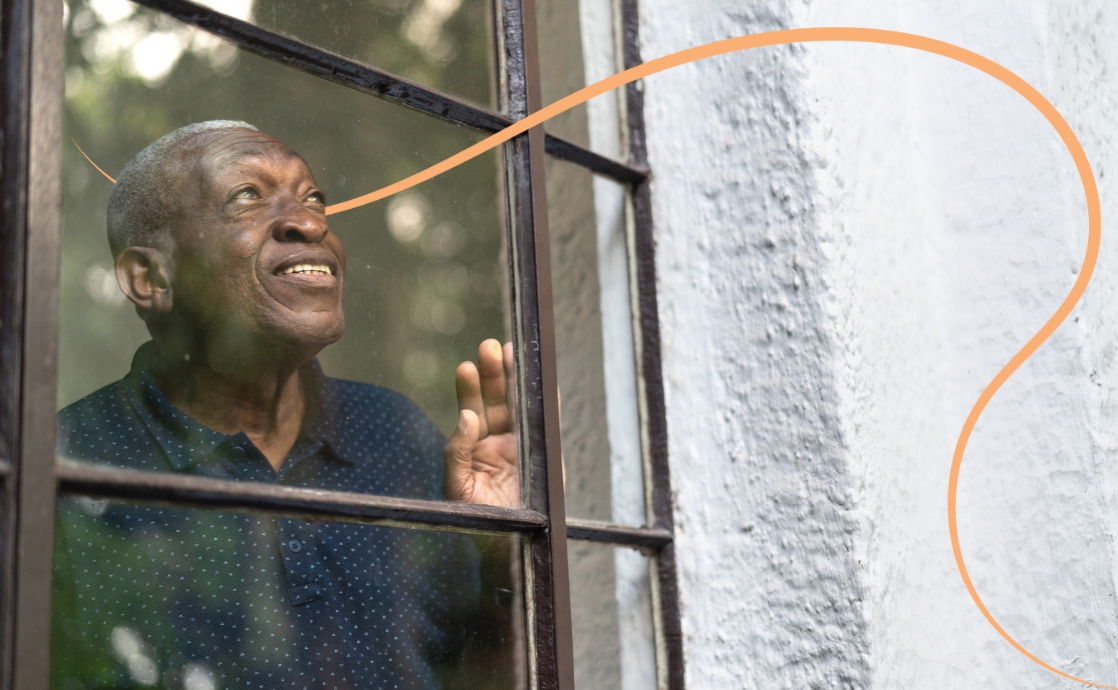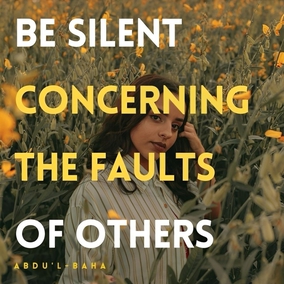The views expressed in our content reflect individual perspectives and do not represent the authoritative views of the Baha'i Faith.
My friend George flew from this world to the next on Tuesday, November 16, 2021. He was 76 years old.
I had the privilege of being his close friend through decades of spiritual and social justice struggle, and then of accompanying him at his bedside throughout his last five days in this world.
Star of the West magazine reported that Abdu’l-Baha once said: “The first thing to do is to acquire a thirst for Spirituality … The way to acquire this thirst is to meditate upon the future life.” For me, George’s passing vivified that injunction.
RELATED: Can We Communicate with Our Loved Ones Who Have Passed On?
In the later part of his life, George was in terrible pain – agonizing pain, really, and constant for many years. In the past few years, his voice was barely audible. Twelve years earlier, he had had prostate cancer. In treating it, he sustained internal radiation burns. They resulted, progressively over the years, in a wound so bad that his nurse, a competent and caring professional with 35 years of hospice experience, said it was the worst she had ever seen – with pain to match.
For several years, I lived 600 miles away from George. When I talked with him by phone, his pauses, gasps, and lapses set off my alarm for “friend-is-in-pain-and-I-should-do-something.” When he came back into focus, he almost always denied any pain, yet the couple of times he admitted it, it was as though he was overcome. “Bill, I’m in constant pain.”
I felt confounded by the mixed signals, and more so by him not getting medical relief. I knew it was possible. What I didn’t know was the extent to which his desire to serve his loved ones exceeded his pain. George insisted on staying sharp and present for the sake of his wife and his grown children. “It’s just a sensation,” he gasped as he grimaced and held his breath. Even when he first entered hospice, he told the nurse “no pain meds, I need to stay alert.” He did that for his wife, whose condition required vigilant care.
I’m not saying George’s pain was worse than anyone else’s and, in any case, this tale is not about pain. George might have been driven from this world by pain, but he never allowed pain to define him or limit his world.
Instead, this story is about encompassing love and the glowing intensity of the life force that surrounded George during his transition to the life beyond.
Even over the phone, George kept his sense of humor and his upbeat equanimity. “That’s a good thing,” was his refrain. His ingrained habit of looking at a thing from the other’s point of view was evident in some teasing if you were close enough to him, but mostly in empathy. He constantly encouraged people. He expressed gratitude for everything people did for him. He continued these other-oriented behaviors until his final conscious moments. How he did that through excruciating pain, I hope never to have to learn. But I can bear witness that his determination to make his life, his time in this world, helpful to others was at the core of why I felt so alive around him and, beyond that, so connected to the origin and purpose of life itself.
RELATED: The Survival of the Soul After Death
George would say that the word “transition” discounts the purpose of life in this world. We’re here as an invitation to choose goodness over evil. We do it or we don’t, and then we go to the next and greater life with a lot – or little – to say about how we used our opportunity for free will. Death is the point at which our measure is taken and, if volitional action then ceases, our life most certainly does not. George and I are both long-time believers in Baha’u’llah, so his faith forms the background for this story.
To begin with, Baha’i writings confidently assert eternal life. In his book Some Answered Questions, Abdu’l-Baha said:
To consider that after the death of the body the spirit perishes is like imagining that a bird in a cage will be destroyed if the cage is broken, though the bird has nothing to fear from the destruction of the cage. Our body is like the cage, and the spirit is like the bird … if the cage becomes broken, the bird will continue and exist. Its feelings will be even more powerful, its perceptions greater, and its happiness increased …
Life doesn’t just continue after this world, the Baha’i teachings say – it gets better. After death, Baha’u’llah assured us, we advance to an even more abundant life:
O My servants! Sorrow not if, in these days and on this earthly plane, things contrary to your wishes have been ordained and manifested by God, for days of blissful joy, of heavenly delight, are assuredly in store for you. Worlds, holy and spiritually glorious, will be unveiled to your eyes. You are destined by Him, in this world and hereafter, to partake of their benefits, to share in their joys, and to obtain a portion of their sustaining grace. To each and every one of them you will, no doubt, attain.
In fact, things hereafter are so good, Baha’u’llah wrote, that “I have made death a messenger of joy to thee. Wherefore dost thou grieve?” and “Death proffereth unto every confident believer the cup that is life indeed …”
That sounds great doesn’t it? It is, though it’s not quite a free ride. Both our faith and our actions – our works – matter. Actions can both test and train my faith yet, at the end, what really matters is my faith. Death is the ultimate final exam.
















Comments
Sign in or create an account
Continue with Googleor